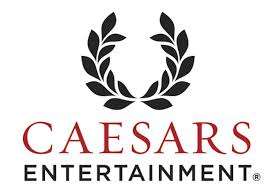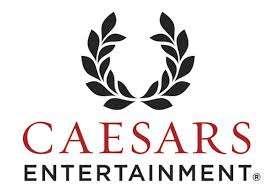Caesars Quashes Debtholder Revolt, Clears Way for Bankruptcy Filing
Caesars Entertainment, Inc., parent company of troubled holding company Caesars Entertainment Operating Company (CEOC), has announced that it has successfully reached debt-restructuring agreements with a 60% majority of all “first lien” bondholders of CEOC debt. Crossing the 60% threshold before Jan. 12th was the first of two such deadlines the company needed to meet, and allows Caesars to move forward with plans to have the CEOC unit declare Chapter 11 bankruptcy in the near future, as the planned central component of a major makeover of the troubled casino-entertainment giant.
 Caesars must ultimately receive two thirds’ consent for its CEOC reorganization plans in order to receive court approval for the bankruptcy filing. In publishing its required SEC notice of crossing the 60% threshold, Caesars announced that it also expected to have agreements in place which will ultimately allow CEOC to exceed the two-thirds majority and allow court approval.
Caesars must ultimately receive two thirds’ consent for its CEOC reorganization plans in order to receive court approval for the bankruptcy filing. In publishing its required SEC notice of crossing the 60% threshold, Caesars announced that it also expected to have agreements in place which will ultimately allow CEOC to exceed the two-thirds majority and allow court approval.
Caesars had been faced this week with an 11th-hour debtholder revolt from certain first-lien bondholders who refused to sign on to the initial CEOC reformation plans, which Caesars filed with the United States’ Securities and Exchange Commission (SEC) last month.
According to a Bloomberg Business report on Wednesday, a group of the senior bondholders announced a holdout, hoping for a better deal within the CEOC restructuring. Elliott Management Corp. and Pacific Investment Management Co, which combined to hold a reported $1.6 billion in CEOC debt, refused to sign the initial deal. Instead of accepting a restructuring payout which would have paid off 93.6% of the existing debt, the investment companies attempted to hold out for a full-par (100%) repayment. The companies retained law firm Debevoise & Plimpton LLP to negotiate, hoping that the few days remaining before Caesars ran into the Jan. 12th 60% deadline would pressure Caesars into offering a sweeter compensation package.
Instead, within one of five different SEC 8-K filings made by Caesars this week, the company negotiated a forbearance fee equal to 1.625% of the existing first-lien debt. The incentive would increase the total expected payout for those signing on the agreement to more than 95%, but comes at the cost of reducing the cash amount available for recovery from the CEOC unit by a little over $200 million.
The resulting package and its approval by additional creditors is what allowed Caesars to meet the deadline, with the result that the revised agreement, termed the “Amended and Restated Restructuring Support and Forbearance Agreement” (RSA), was dated December 31st, 2014 and officially went into effect yesterday.
Whether or not CEOC will officially file for bankruptcy in the initially planned Jan. 15-20 window or allow the filing to slide back to early February remains to be finalized.
As previously reported, CEOC’s debt load will be sliced nearly in half through the Chapter 11 restructuring. The CEOC unit includes many of Caesars Entertainment’s largest and most famous properties, including on its corporate ledger 44 casino properties in 13 states and five countries.
“We are pleased to have the support of our first lien noteholders on CEOC’s restructuring plan,” said Gary Loveman, Chairman and Chief Executive Officer of Caesars Entertainment and Chairman of CEOC, in conjunction with the threshold-crossing announcement. “This is an important step in the process that will allow us to move ahead with our plan to create a strong and sustainable capital structure for CEOC.”
At the present time, CEOC remains burdened by $18.4 billion in debt, the legacy of a massively leveraged buyout over eight years ago at the height of last decade’s investment and property-value bubbles. Stagnant revenues in Caesars’ major markets in recent years left the CEOC unit with no reasonable prospects of profitability. Following the bankruptcy filing and partial shedding of debt, CEOC will be split into two separate components, a real estate investment trust (REIT) to own the 44 casino properties, which will collect rent from a separate entity, an operating company, which will perform the casinos’ day-to-day management.




















COMMENTS